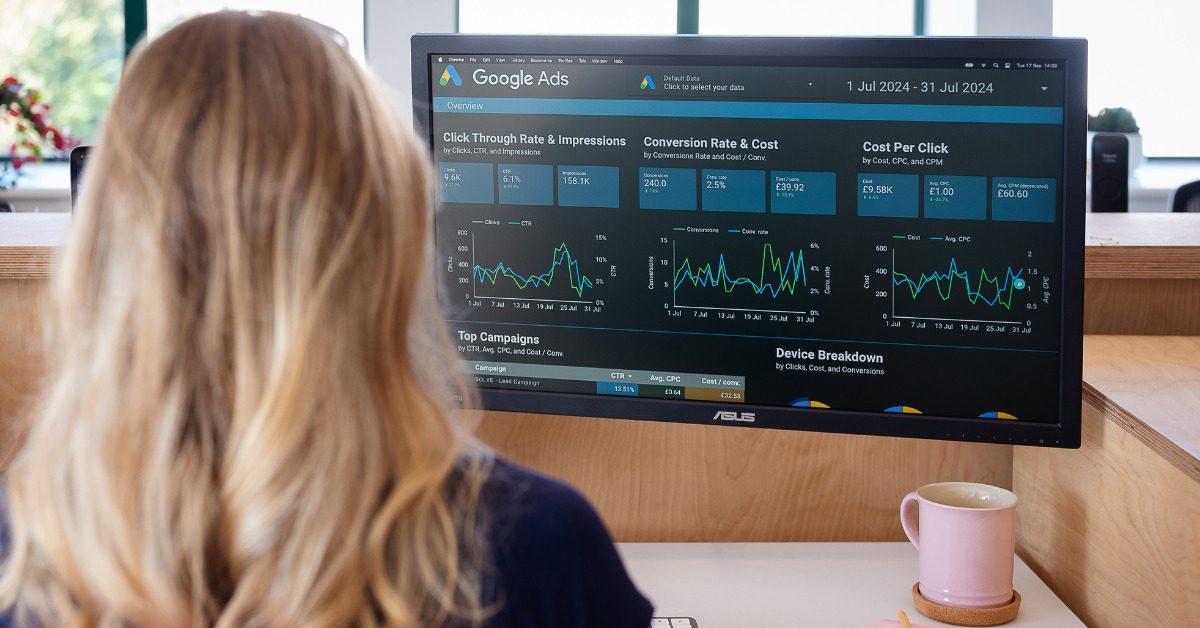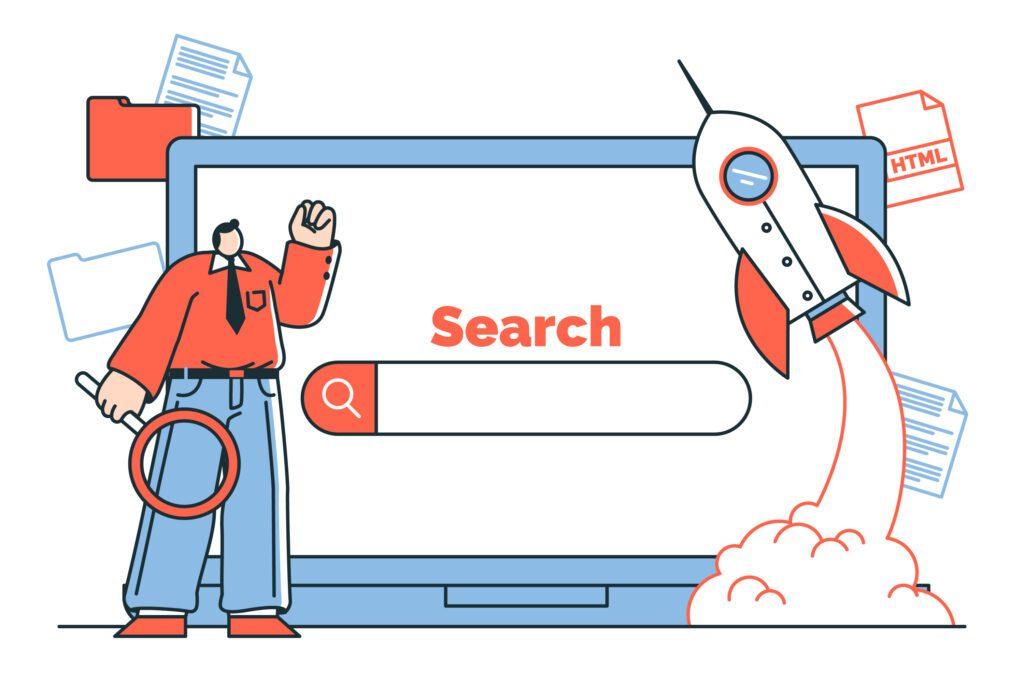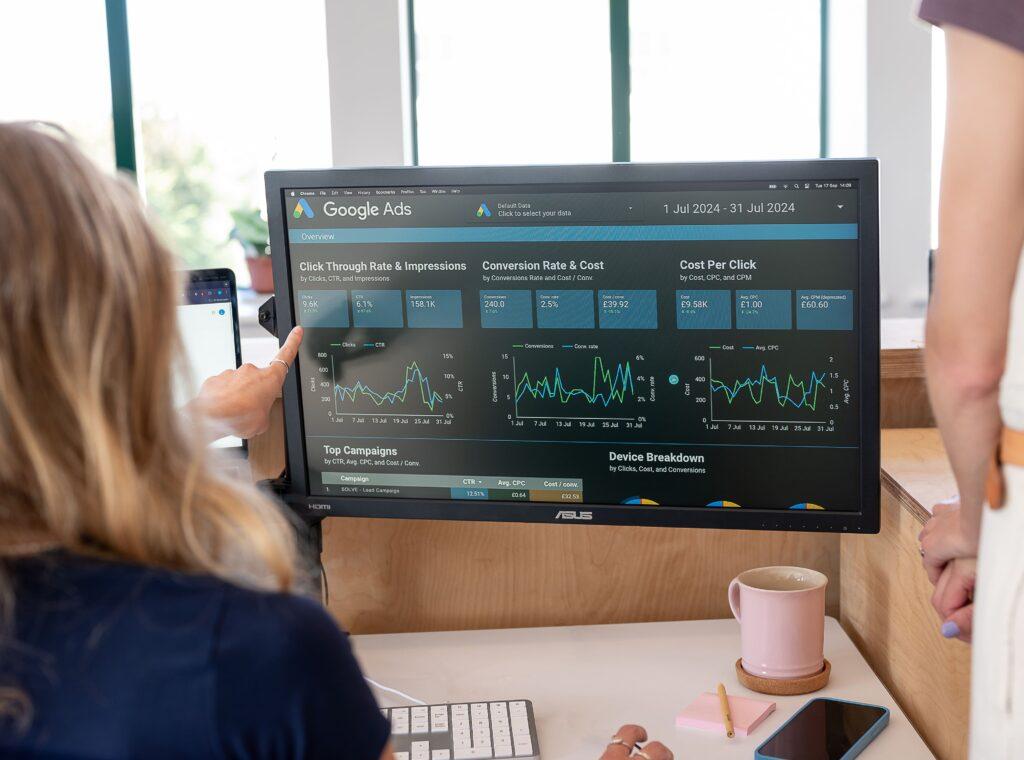
Table of Contents
What is PPC?
Defining Pay Per Click
Pay-Per-Click, or PPC, can be easily explained as when advertisers pay a fee each time someone clicks on their ad. Rather than earning visits organically, businesses purchase visits to their website, landing page, or app through targeted ads. This ensures you only pay when a potential customer engages with your advert, making it more cost-effective than regular advertising.
How PPC Differs from Other Digital Marketing Models
PPC is distinct from other models such as SEO (search engine optimisation), as PPC guarantees visibility by placing your ad in prominent positions for relevant keywords, rather than earning organic traffic from optimised content. Similarly, unlike CPM (cost per thousand impressions) where you pay for views regardless of engagement, PPC ensures you only pay when someone clicks on your ad.
Common PPC Platforms

The largest PPC platform is Google Ads, which places ads on Google search results and partner sites. And with Google processing 9.5 million searches every minute, it’s easy to see why. Other popular PPC platforms include social media networks and Microsoft advertising.
How Does PPC Work?
The PPC Auction Process
Each time a user performs a search, a real-time auction takes place to decide which ads are shown and in what order. Advertisers compete by bidding on specific keywords or search terms, but it’s not just about who bids the most. The platform also considers the quality and relevance of each ad. That’s why having a smart, well-structured bidding strategy is essential for success in pay-per-click marketing.
Keyword targeting & Bidding
The bidding refers to the highest amount the advertiser would be willing to pay per click. Advertisers select the keywords most relevant to their business and set their maximum bid. If a keyword is particularly competitive, then the cost for “winning” is likely to be higher, but so will be the reward. Effective keyword research and bid management are crucial for success in PPC marketing.
Ad Quality and Ad Rank
Platforms like Google use an ad rank system, which considers the combination of your bid, ad quality, relevance, and expected click-through rate. High-quality, relevant adverts will achieve better positions at lower costs, rewarding advertisers who focus on user experience and relevance above all else.
Types of PPC Ads

- Search Ads: Text ads on search engine results pages
- Shopping Ads: Product-based ads on search engines
- Display Ads: Image or banner ads on websites
- Video Ads: Short video ads on platforms like YouTube
- Social Ads: Sponsored posts or stories on social media
Key Benefits of PPC Advertising
Driving Website Traffic & Leads
PPC is excellent for generating leads and driving traffic due to being able to reach users who are actively searching for your product or service, right on the search engine results pages (SERPs). Whether you’re running campaigns on Google Ads, the Google Display Network, or platforms like Microsoft Advertising and Bing Ads, PPC allows you to fine-tune your advertising campaigns with precision.
Enhancing Brand Awareness
While getting clicks on your ads is the primary goal, simply having a PPC ad increases your brand’s visibility across search engines, social media, and display networks, boosting overall brand recognition and keeping your business top of mind.
Supporting Other Marketing Channels
PPC works alongside other marketing tools like SEO, content marketing, and email campaigns to amplify their effects and provide valuable data for optimisation across channels.
Data Insights for Business Growth
Pay-per-click advertising platforms offer powerful analytics tools, allowing you to track key metrics like impressions, clicks, conversions, and return on investment (ROI). These insights not only help you optimise your current campaigns but also provide valuable data to guide your broader marketing strategies.
Common Challenges & Best Practices
Avoiding Click Fraud & Wasted Spend
Click fraud occurs when your ads receive illegitimate clicks from competitors, bots, or malicious users, inflating your advertising costs and distorting performance data, typically for personal or financial gain. This can happen when competitors aim to drain your budget or when bots generate clicks to profit from fake publisher sites. To safeguard your campaigns, utilise built-in platform tools, implement monitoring systems, and routinely review key metrics to detect and block suspicious activity before it negatively affects your return on ad spend (ROAS).
Optimising Campaigns for Better Results
To improve PPC performance, regularly refine your keyword lists by adding negative keywords to avoid irrelevant clicks. You should also continuously test different ad copy and landing pages to see what resonates best with your audience. Additionally, adjust your bids and budgets based on performance data to maximise efficiency and return on ad spend.
Ongoing Management & Continuous Improvement
To crush your PPC goals, dive into your data regularly, tweak your targeting, and play around with fresh strategies, so you can boost your ROI and leave your competitors in the dust!

Getting Started with PPC
Setting Goals & Choosing Platforms
Begin by defining clear and specific objectives for your campaign, whether that’s driving more traffic to your site, generating qualified leads, increasing sales, or boosting brand awareness. Having well-defined goals helps shape your entire strategy. Next, conduct thorough research to understand your target audience’s behaviours, preferences, and pain points. This insight will guide you in selecting the most effective platforms and channels to reach them, ensuring your advertising efforts hit the right people at the right time.
Building Your First Campaign
Getting started with PPC is easier when you break it down into clear, actionable steps:
- Conduct thorough keyword research to target the right audience
- Set a realistic budget for your bids that aligns with your goals
- Craft compelling ad copy that grabs attention and drives clicks
- Design effective landing pages that convert visitors into customers
- Launch your campaign and monitor performance closely
- Continuously make adjustments to optimise results and maximise ROI
Launch Your PPC Campaign
Ready to unlock the full potential of PPC marketing? Whether your goal is to drive qualified leads, increase sales, or elevate brand awareness, pay-per-click advertising provides a measurable, scalable, and cost-effective solution tailored for businesses of every size.





